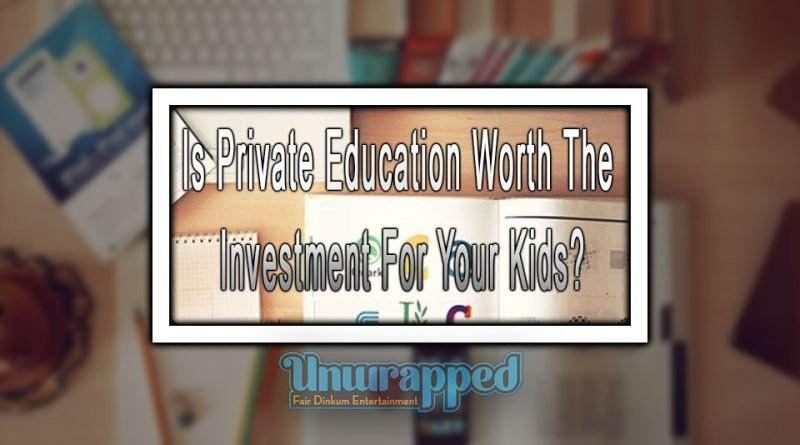Evaluating the Value of Private Education for Young Children
Evaluate the value of private education for young children
As parents, we all want what’s best for our children, particularly when it comes to their education. One of the well-nigh significant decisions you might face is whether to enroll your child in a private school. With the growth focus on educational quality and personalized learning, many parents find themselves ask, “ is private education worth it for my young child? ” This article delves into the various aspects of private education, weigh its benefits against the potential downsides, and finally help you make an informed decision.
 Source: sportskeeda.com
Source: sportskeeda.com The benefits of private education
Private education offer several advantages that can be appeal to parents who are sought the best possible start for their children:
- Smaller class sizes: One of the about cited benefits of private schools is their small class sizes, which allow for more individualized attention and tailor instruction. This can be specially beneficial for young children who are exactly begin their educational journey.
- Specialized curricula: Private schools oftentimes have the flexibility to design specialized curricula that cater to specific educational philosophies or focus areas, such as the arts, sciences, or languages.
- Qualified educators: Many private schools employ extremely qualified teachers who have a deep passion for education, oftentimes hold advanced degrees in their field.
- Extracurricular opportunities: With a broad range of extracurricular activities, private schools provide students with opportunities to explore interests beyond the standard academic curriculum, foster an advantageously round educational experience.
- Safe and nurturing environment: Private schools typically emphasize a safe and disciplined environment, oftentimes feature lower student to teacher ratios that can help in promote a nurturing learn atmosphere.
Potential drawbacks of private education
Despite the many benefits, there be besides some potential drawbacks to consider:
 Source: businesstech.co.za
Source: businesstech.co.za - Cost: The about significant downside for many families is the cost. Private schools can be expensive, and tuition fees might not be feasible for every family.
- Limited diversity: Depend on the location and mission of the private school, the student body might be less diverse compare to public schools, which could impact social learning experiences.
- Pressure to perform: Some private schools have a reputation for being extremely competitive, which might place undue pressure on young students.
- Accessibility: Private schools are oftentimes located in specific areas, which might require longer commutes or relocation.
Real life example: weigh the options
Consider the case of the Johnson family, who face the decision of whether to send their 5-year-old daughter, Emma, to a local private school. With Emma show an early aptitude for reading and art, her parents believe she’d benefit from a specialized curriculum. Nonetheless, the tuition was a significant financial commitment. After careful consideration, they decide to enroll Emma in the private school, take advantage of a scholarship program that help mitigate the costs. Emma thrives in the smaller class sizes and have access to art programs unavailable in local public schools, validate theJohnsons’ choice.
Factors to consider
If you’re contemplated private education for your young child,Heraa are some factors to take into account:
- Educational goals: Consider what you hope to achieve with your child’s education. Does the private school align with these goals?
- Financial planning: Evaluate your financial situation and explore scholarship or financial aid options that might make private education more accessible.
- School reputation: Research the school’s track record, include academic performance and student outcomes.
- Visit and observe: Tour the school, observe classes, and speak with teachers and administrators to get a feel for the environment.
- Community and values: Reflect on whether the school’s values and community align with your family’s beliefs and lifestyle.
Conclusion: make an informed decision
Decide whether private education is worth it for your young child is a personal choice that depend on multiple factors, include your child’s needs, your ffamily’sfinancial situation, and the options available in your area. While private education offer significant benefits, it’s essential to weigh these against potential drawbacks and ensure that your decision aligns with your long term educational goals for your child.
Finally, the key is to gather equally much information as possible, consider all factors, and make a decision that feel right for your family. For further exploration, consider speak with educational consultants, other parents, and review resources on both private and public education systems.



